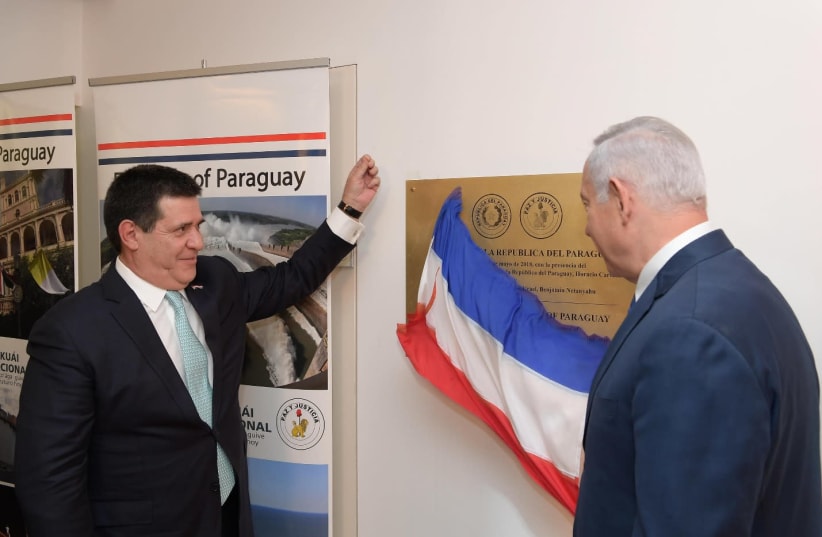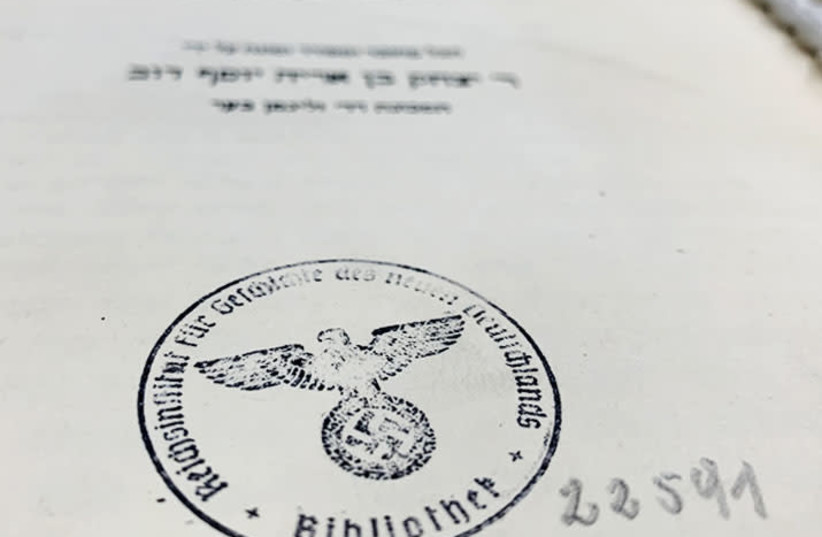With a new government on the way, Israel will have its latest opportunity to assess the status of its global relationships.
Israel continues to deepen its ties with the Muslim world through the signatories of the Abraham Accords. With Benjamin Netanyahu now set to return to power, the discourse has grown around additional countries, such as Pakistan and Saudi Arabia potentially joining the Accords. Further, Azerbaijan’s parliament recently initiated the process of opening an embassy in Israel, making it the first Shi’ite Muslim-majority nation to take that step.
At the same time, Israel must also consider which of its relationships could prove counterproductive. In that regard, ties with Paraguay deserve increased scrutiny.
Paraguay and Israel ties
Over the past five years, Paraguay, under the feckless leadership of President Mario Abdo Benítez, has become the principal hub of large financial operations in support of terrorist organizations in the Middle East. Notably, in September 2018, a mere three weeks after Abdo Benítez assumed the presidency, Paraguay moved its embassy in Israel out of Jerusalem and back to Tel Aviv. The embassy’s tenure in Jerusalem lasted only several months, making the shift a particularly puzzling diplomatic decision.
Abdo Benítez, who is of Lebanese descent, has made sure to embolden money laundering activities in support of Hezbollah and other international terrorist groups.
Illegal trade of commodities concocted by various business enterprises is run by foreign citizens in the tri-border area of Ciudad del Este and other parts of the country, with strong ties to Asuncion’s top political and judiciary elite, thus violating the policies established by the US Treasury Department. These activities involve the circulation of large amounts of funds in support of terrorist operations in the Middle East, directly affecting the national security of Israel, as well as its allies in Europe and the Caucasus.
The case of Kassem Mohamad Hijazi, a Brazilian citizen of Lebanese origin who had been arrested in a case led by prosecutor Marcelo Pecci, who was murdered in May 2022 in Colombia, genuinely illustrates the tremendous level of corruption that exists in Paraguay’s Supreme Court. Antonio Fretes, the current president of the Supreme Court, received a bribe of over $300,000 (NIS 1 million) in exchange for obstructing Hijazi’s extradition to the US.
HIJAZI WAS extradited to the US from Paraguay on July 8, despite the bribes he made to Fretes and Paraguay’s Attorney General Sandra Raquel Quiñonez Astigarraga. Making matters worse, Minister of Interior Federico Alberto González Franco took special care to delete all criminal antecedents of the Hijazi clan from the classified database of the Paraguayan National Police’s IT Department.
Hijazi has allegedly agreed to launder the proceeds of narcotics trafficking and for years operated an illegal money-transmitting business, the proceeds of which were further laundered into and out of the US Between 2018 and 2020, Hijazi orchestrated a money laundering operation that benefited terrorist organizations that have constantly threatened Israel.
Further, a failed political impeachment against Fretes, initiated by a small team of parliamentarians in Paraguay’s Lower Chamber of Deputies, is a clear indication of the deep corrosion of the political landscape in Asuncion – endangering the very existence of its national institutions. Hijazi’s penetration into the highest levels of Paraguay’s government is also illustrated by the unbridled courage of his sister, Dr. Najat Ali Hijazi, who traveled to the Czech Republic together with President Abdo’s brother, Dr. Jorge López Benítez, to attend the 28th Congress of European Society of Pediatric Rheumatology in September 2022.
High levels of corruption in this remote, underdeveloped nation translate into direct security concerns in the Middle East. Paraguay, a failed state in South America, is largely enabling terrorist organizations to secure logistical and financial resources that are undoubtedly an unquestionable threat to the security and national integrity of Israel.
The Venezuelan Emtrasur Boeing cargo plane – with connections to Iran – landed in Ciudad del Este twice in 2022, another troublesome pattern that should sound an alarm among Israel’s security establishment. The cargo plane was piloted by a crew of seven Iranian and 11 Venezuelans. Its reasons for landing and spending a few days in Paraguay are unknown; however, it has been confirmed by local news reports that Vice President Hugo Adalberto Velauez Moreno held a meeting with Emtrasur’s Iranian crew.
It is evident that Quinonez has failed to interrogate Minister Federico Alberto Gonzalez in relation to his involvement in allowing Emtrasur to enter Paraguayan airspace and spend time in its territory.
Netanyahu’s forthcoming government should employ more resources in the human intelligence and signal intelligence realms, with a special focus on the criminal networks in South America that support terrorist operations – the terror groups that are constantly attacking both Israel’s territory and its national interests abroad.
Ultimately, paying closer attention to South America as a core component of Israel’s foreign policy would constitute a crucial step in the country’s efforts to combat regional and international terrorism, as well as crimes against humanity.
The writer is the founder of the Azerbaijan-United States Economic and Education Council, an expert on South American geopolitics and the author of six books on international relations.

